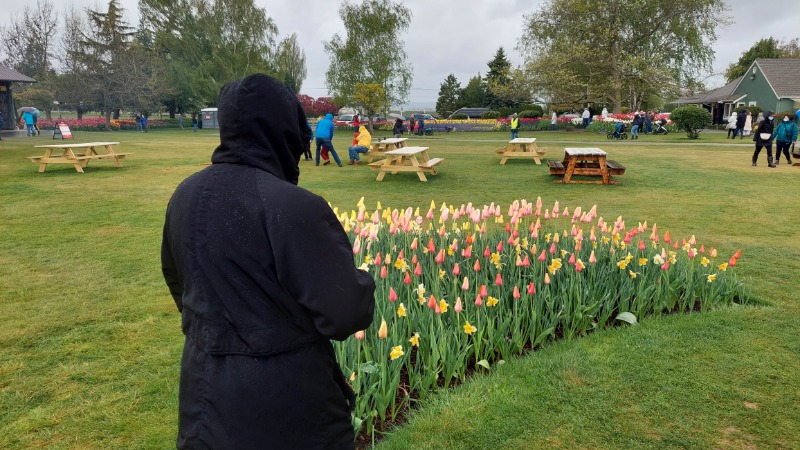In this post…
Depression affects millions worldwide, leaving a profound impact on both the brain and body. While its emotional toll is often the most recognized, depression’s physical effects can be just as debilitating. Understanding these effects and how therapeutic interventions like Mindfulness-Based Ecotherapy (MBE) can provide relief is crucial for those seeking holistic approaches to mental health.
The Brain Under Depression
Depression affects more than just mood; it fundamentally changes how the brain operates. Key areas affected include:
- Hippocampus: This region, responsible for memory and learning, often shrinks in people with chronic depression. Prolonged exposure to stress hormones like cortisol can damage hippocampal cells, leading to memory issues and difficulty concentrating.
- Prefrontal Cortex: Essential for decision-making, emotional regulation, and planning, the prefrontal cortex becomes less active during depressive episodes. This contributes to the feelings of hopelessness and indecision commonly associated with depression.
- Amygdala: Often referred to as the brain’s emotional center, the amygdala becomes hyperactive during depression. This heightened activity can exacerbate anxiety and intensify negative emotions, creating a cycle of emotional overwhelm.
How Depression Affects the Body
Depression affects the body as well as the brain in the following ways:
- Immune System: Chronic depression weakens the immune system, making individuals more susceptible to infections and illnesses.
- Cardiovascular System: Depression affects the risk of heart disease due to elevated stress hormones and unhealthy lifestyle choices often accompanying the condition.
- Digestive Issues: The gut-brain axis highlights the connection between mental health and digestion. Depression affects stomach problems, appetite changes, and irritable bowel syndrome (IBS).
- Chronic Pain: Depression affects the body physically through unexplained aches and pains, further compounding emotional distress.
The Role of Mindfulness-Based Ecotherapy
Mindfulness-Based Ecotherapy (MBE) is an innovative therapeutic approach that combines the principles of mindfulness and nature-based practices. By engaging clients in outdoor, mindful activities, MBE fosters a deeper connection to the natural world, promoting mental and physical well-being. Here’s how it can help counteract depression:
- Reducing Cortisol Levels Spending time in nature has been shown to lower cortisol levels, the primary stress hormone linked to depression. Activities like mindful walking, forest bathing, or simply observing natural surroundings can calm the mind and body, reducing stress.
- Enhancing Neuroplasticity MBE encourages practices that stimulate neuroplasticity, the brain’s ability to adapt and rewire itself. Mindfulness exercises improve the functioning of the prefrontal cortex, helping to regulate emotions and restore a sense of control.
- Improving Physical Health Engaging in gentle outdoor activities can boost physical health by improving cardiovascular function, enhancing immune response, and alleviating chronic pain. These benefits create a positive feedback loop that supports mental health recovery.
- Promoting Mindful Awareness Depression affects individuals by trapping them in cycles of rumination and negative thinking. MBE teaches mindfulness techniques to interrupt these cycles, fostering greater awareness of the present moment and reducing the grip of depressive thoughts.
- Building a Sense of Connection Isolation is a hallmark of depression. By encouraging interaction with nature and participation in group activities, MBE helps individuals feel connected—both to their environment and others—alleviating feelings of loneliness.
Practical Steps to Incorporate Mindfulness-Based Ecotherapy
If you’re interested in exploring MBE, here are some practical ways to start:
- Mindful Walking: Take a walk in a natural setting, focusing on the sensations of your steps, the sounds of the environment, and the rhythm of your breath.
- Nature Journaling: Spend time observing a tree, flower, or landscape, then write about what you notice. This practice can enhance your connection to the natural world.
- Eco-Art Therapy: Use natural materials like leaves, stones, or twigs to create art. This creative outlet can help you express emotions and foster a sense of accomplishment.
- Forest Bathing: Immerse yourself in a forested area, engaging all your senses to experience the environment fully.
Why Choose MBE for Depression?
Mindfulness-Based Ecotherapy offers a holistic approach that addresses the interconnectedness of mental, physical, and emotional health. By leveraging the therapeutic power of nature and mindfulness, MBE provides a refreshing alternative to traditional treatments. It’s particularly effective for individuals seeking non-pharmaceutical options or complementary therapies to enhance their overall well-being.
Final Thoughts
Depression is a complex condition that requires comprehensive care. While its effects on the brain and body can be profound, approaches like Mindfulness-Based Ecotherapy offer hope and healing. By reconnecting with nature and cultivating mindfulness, individuals can find relief from depressive symptoms and embark on a path toward lasting recovery. If you or someone you know is struggling with depression, consider exploring the transformative potential of MBE as part of your mental health journey.
Share Your Thoughts on Depression!
Do you suffer from depression? What helps? Share your thoughts in the comments below!
Don’t forget to check out our YouTube channel!

